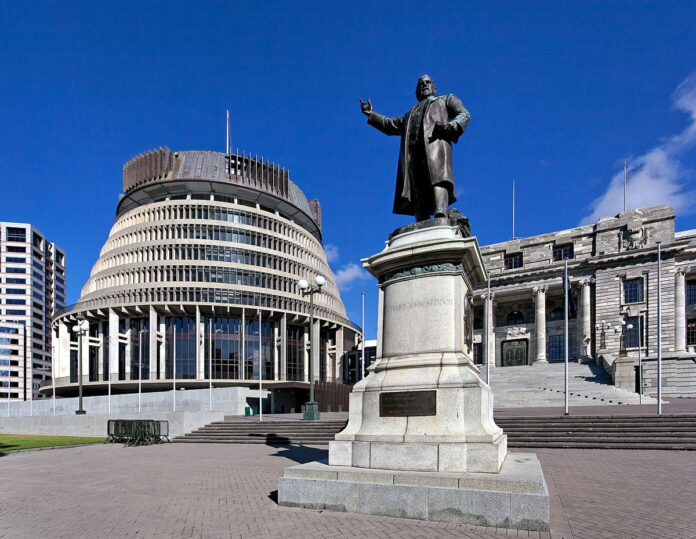A Far reaching History of New Zealand
New Zealand, referred to its native Maori individuals as Aotearoa, is a country wealthy in history and culture. From its geographical development to its ongoing status as a moderate and dynamic nation, New Zealand’s set of experiences is both complicated and interesting. This exhaustive outline covers key periods and occasions in New Zealand’s set of experiences, following its excursion from old times to the current day.
Topographical and Ancient Foundation
Development and Early Verdure
New Zealand’s topographical history goes back more than 500 million years when it was essential for the super continent Gondwana. Around a long time back, New Zealand started to float away, at last shaping its own one of a kind biological system. The nation was overwhelmed by old rain forests, with a surprising exhibit of verdure, including the goliath moa bird and the Haast’s hawk.
Appearance of the Maori
The main people to get comfortable New Zealand were the Polynesians, precursors of the Maori, who showed up around 1200 Promotion. Utilizing progressed route procedures, they went in huge maritime kayaks (waka). These early pilgrims fostered a rich culture, laying out ancestral networks known as iwi and hapu, each with their own unmistakable domains and customs.
Early Maori Culture
Society and Administration
Maori society was coordinated into clans (iwi) and sub-clans (hapu), drove by bosses (rangatira) and elderly folks (kaumatua). The idea of mana (otherworldly power and authority) and tapu (holiness) assumed urgent parts in their social design. They constructed invigorated towns (dad) and created complex wood cutting, winding around, and inking (ta moko) customs.
Financial Exercises
The Maori were gifted horticulturists, developing yields, for example, kumara (yam). They likewise participated in fishing, hunting, and assembling. Their economy depended on correspondence and exchange, with complex organizations of trade that stretched out all through the islands.
European Investigation and Colonization
Early European Contact
The primary known European to locate New Zealand was Dutch pioneer Abel Tasman in 1642. In any case, it was only after English traveler Commander James Cook’s journeys in 1769 and 1770 that definite guides of the islands were made. Cook’s connections with the Maori laid the preparation for future European investigation and contact.
The Teacher Time frame
The mid nineteenth century saw the appearance of Christian teachers, who tried to change the Maori over completely to Christianity. Figures, for example, Samuel Marsden and Henry Williams assumed critical parts in these endeavors. The ministers presented new horticultural practices, proficiency, and Western training, which significantly affected Maori society.
The Arrangement of Waitangi and Early Provincial Period
The Arrangement of Waitangi (1840)
Perhaps of the most significant occasion in New Zealand history was the marking of the Arrangement of Waitangi on February 6, 1840. The deal, endorsed between delegates of the English Crown and different Maori bosses, planned to lay out English regulation in New Zealand while perceiving Maori land freedoms and allowing them English citizenship. Notwithstanding, varying understandings of the arrangement’s terms prompted critical questions and clashes.
New Zealand Wars (1845-1872)
Pressures over land and power prompted a progression of contentions known as the New Zealand Wars. These conflicts, battled between English pilgrim powers and Maori clans, were driven by disagreements about land proprietorship and the effect of European settlement on Maori society. Key fights happened in areas like the Sound of Bounty, Taranaki, and Waikato. The conflicts brought about critical death toll and land for the Maori.
Improvement of Frontier New Zealand
Monetary Development and Movement
The last 50% of the nineteenth century saw critical monetary development and movement. The revelation of gold in Otago and the West Coast during the 1860s pulled in a large number of miners, prompting fast turn of events and the foundation of towns. The presentation of refrigerated transportation during the 1880s permitted New Zealand to trade meat and dairy items to England, further helping the economy.
Social and Political Changes
New Zealand became known for its dynamic social and political changes during this period. In 1893, it turned into the principal country on the planet to allow ladies the option to cast a ballot, because of the endeavors of suffragists like Kate Sheppard. The presentation of the Advanced Age Benefits Act in 1898 and the foundation of an extensive general wellbeing framework were likewise prominent accomplishments.
The twentieth Hundred years: War, Wretchedness, and Change
Universal Conflicts and the Economic crisis of the early 20s
New Zealand assumed dynamic parts in both The Second Great War and The Second Great War, with critical commitments to the Associated powers. The Anzac (Australian and New Zealand Armed force Corps) custom was conceived out of the Gallipoli lobby in 1915, an extremely important occasion in New Zealand’s public personality. The Economic crisis of the early 20s of the 1930s brought serious monetary difficulty, prompting the appointment of the primary Work government in 1935, which executed broad social government assistance programs.
Post-War Flourishing and Social Change
The post-war time was set apart by financial thriving and huge social change. The time of increased birth rates, urbanization, and the ascent of a shopper society changed New Zealand. The 1950s and 1960s saw the development of a solid government assistance express, the extension of schooling, and expanded government mediation in the economy.
Maori Renaissance and Current Turns of events
The Maori Renaissance
The last 50% of the twentieth century saw a resurgence of Maori culture and political activism. The Maori fight development picked up speed during the 1970s and 1980s, with critical occasions, for example, the land walk drove by Woman Whina Cooper in 1975. The foundation of the Waitangi Council in 1975 gave a lawful component to addressing verifiable complaints connected with the Deal of Waitangi.
Financial Changes of the 1980s and 1990s
The 1980s brought major financial changes under the Work government drove by Top state leader David Lange. Known as “Rogernomics,” these changes included liberation, privatization of state-possessed ventures, and decrease of exchange hindrances. These progressions changed New Zealand into one of the most open and unregulated economy economies on the planet, however they likewise prompted social separation and expanded imbalance.
New Zealand in the 21st Hundred years
Moderate Arrangements and Worldwide Standing
In the 21st 100 years, New Zealand has kept on being perceived for its dynamic arrangements and global commitments. The nation has major areas of strength for taken on natural preservation, environmentally friendly power, and environmental change. Under pioneers like State head JacindaArdern, New Zealand has acquired worldwide consideration for its treatment of emergencies, for example, the Christchurch mosque shootings in 2019 and the Coronavirus pandemic.
Social and Social Advancement
New Zealand today is a multicultural society, mirroring its different populace of Maori, European, Pacific Islander, and Asian people group. The nation puts areas of strength for an on biculturalism and the advancement of Maori language and culture. Endeavors to address verifiable shameful acts and elevate social value keep on molding the public talk.
Financial and Innovative Progressions
New Zealand’s economy is portrayed by a blend of customary ventures like farming and new areas like innovation and film. The nation is a main exporter of dairy, meat, and wine, while likewise acquiring a standing in the worldwide entertainment world with motion pictures like “The Ruler of the Rings” set of three. Mechanical advancement and business venture are main impetuses in the cutting edge economy.

End
New Zealand’s set of experiences is an embroidery of native flexibility, pilgrim effect, and present day reformism. From its antiquated land roots and the rich culture of the Maori nation to the groundbreaking impacts of European colonization and the unique changes of the twentieth and 21st hundreds of years, New Zealand keeps on developing while at the same time regarding its past. The country’s obligation to civil rights, ecological manageability, and social variety separates it on the worldwide stage, making New Zealand an exceptional and moving country.





